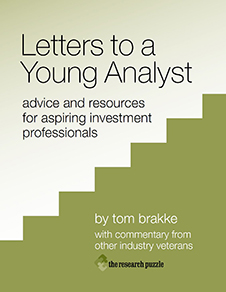
- Friday, July 3rd, 2009
- celebrating independence
-
In times of plenty, the fireworks that are endemic to the holiday we celebrate this weekend get more extravagant each year and serve as emotional bursts of wonder and pride. This year, some communities have cut back or eliminated them altogether, and where they are proceeding as before, some might think of the displays as “a waste of gunpowder and sky.”The phrase is courtesy of Aimee Mann, from the song “4th of July” (Whatever, 1993).
As representations of the ideals and spirit that formed and have sustained this country, the fireworks are subject to our impressions and moods about how things are going politically, economically, and in every other way. I may not see them this year, but I can hear them in the distance from my home, and they will remind me of my aunt Edith, who embodied the values at the core of the American dream, and whom we buried yesterday at the township cemetery that she tended, in the soil that she knew all of her life, full of family and friends and roots.
This has never been a personal blog, except tangentially, and so you might expect that I will find a way to the business of investments from my reflections on country and kin. It is not too hard, given that the words independence and independent are so much in vogue these days.
It all seemed to start with the Global Research Analyst Settlement (which for the most part will wind down later this month), with independent research being selected by independent consultants (of which I am one), and independent “monitors” gauging whether the settling firms have complied with the operational aspects of the court order in addition to the research ones.
Of course, the failures of corporate governance earlier in the decade also brought lots of talk about the need for independent board members at corporations, and whether the roles of chairman and CEO should be separated to reduce conflicts of interest and the agency costs that have arisen because of misaligned incentives.the research puzzle | For new readers, I did a series of postings on misaligned incentives throughout the investment business. This is a link to the index of them, which includes the summaries received by those who get notifications of postings via email.
One long-standing perversion of the term involves the boards of mutual funds, which are supposed to be independent, but are too often anything but. I was once asked whether I had an interest in being on a mutual fund board, and it is telling that I was contacted not by a representative of the board, but by a representative of the investment adviser that manages the fund. Even in the wake of the mutual fund timing scandals, this conflict seems to never end.Investment News | This, for example, is one recent announcement.
Of late, so-called independent broker-dealers are the rage, as the big firms lose financial advisors and many (including me) have set up independent advisory firms over the last few years. The question with all of these is, what’s in a name? Just because you call yourself independent, is that the case?
On the one hand, all of us have conflicts of interest of one kind or another. Disclosure and the application of fiduciary standards are necessary but not sufficient to deal with those realities; character and honor are what matter in the end and, unfortunately, tough regulations are needed to deal with the scofflaws.
But just as important is an independence of thought; the common lack of it is actually a bigger problem for the industry than illegal activity. Something described as an independent approach, but which really isn’t, seems to lack danger, but is full of it.
One definition of independent is “free from the influence, guidance, or control of others; self-reliant.” That doesn’t mean that someone has to go it alone, but it does mean that if they are part of organizations, they must be forceful in their objections, always willing to stand up for what is right, and ever ready to remind others of the principles on which decisions should be made.
My aunt Edith was a joiner, and seemed to be an active member of every community organization that you could list. She didn’t join to socialize or to capitalize, but rather to make sure that things were done that should be done. Her actions were always subservient to her own interests.
We can proclaim independence and celebrate it, but living it in our actions is much harder, yet that is what the investment industry needs today.
